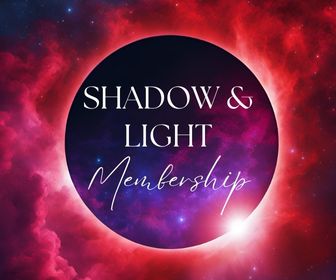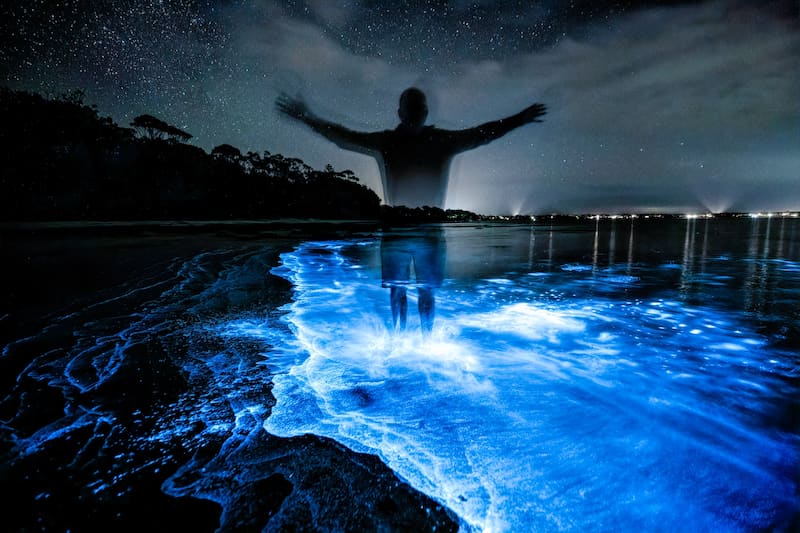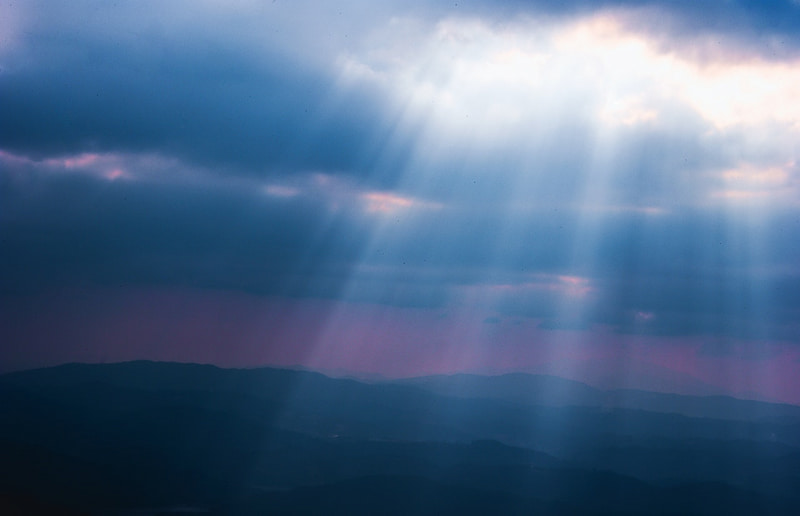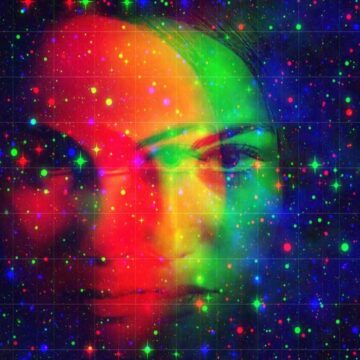Now, here’s the thing: I’m not a zen practitioner, nor do I necessarily write for an audience of zen enthusiasts (however, if you are one, that’s awesome!). But there’s a certain term that is quite unknown at the time of writing, which I hope comes more into the mainstream:
Makyo.
If you’re a sincere spiritual practitioner interested in truth over illusion, makyo is a term you need to familiarize yourself with.

Spiritual Wanderer Course:
⭐️⭐️⭐️⭐️⭐ "I started the Spiritual Wanderers Course a short while ago and for the first time in twelve years I have started to experience love, acceptance and compassion for myself and within myself. Thank you so much." – Vivienne S.
If your focus on the spiritual awakening path is to find that which is abiding, doesn’t come and go, and is the ever-present silence beneath the noise – in other words, that which is your True Nature – you’re in luck. Learning about makyo can help tremendously.
On the other hand, if you’re into stuff like crystals, angels, cosmic downloads, achieving special states of altered consciousness, and so on, that’s fine, but this article might be a bit confronting or irrelevant to you at this point on your journey.
Table of contents
What is Makyo?

Makyo (or Makyō) is a term in the Zen tradition that refers to the spiritual delusion of clinging and attaching to the mental phenomena that come up during practices like meditation.
The problem with taking special interest in the various hallucinations and visions that arise in our spiritual practice, according to ancient Zen philosophy, is that it causes us to delude ourselves into believing that we’re extra special or have even reached an enlightened state of consciousness. Such assumptions can easily produce a kind of ego inflation that results in problems like spiritual narcissism and spiritual materialism.
In the words of John Daido Loori, who was the abbot of Zen Mountain Monastery,
Sometimes during sitting people have what we call makyo: a vision or hallucination. Other times it’s a smell or sound. Students often think this means they’re enlightened–particularly if the image is related to Zen, like the Buddha sitting on a golden lotus–and they immediately run off to dokusan (a private interview with one’s teacher) to get it confirmed. The teacher will usually listen and then say something like, “Maybe you’re not sitting straight. Sit straight. Don’t worry, it will go away.” It doesn’t matter whether we attach to a regular thought, or to the thought of enlightenment. Whatever it is, it is still attachment.
(Text in brackets my own)
Why Makyo Can Feel Like a Bitch Slap

As we can see, makyo is all about attachment, and in particular, spiritual attachment, which is a trap and pitfall that we can easily fall into on the spiritual path, especially in the West, where being unique and important is seen as a badge of success and honor.

Shadow & Light Membership:
⭐️⭐️⭐️⭐️⭐ "Receiving these messages is a beacon of light and hope for me in currently very challenging times. The words of wisdom speak right to my soul, guiding and encouraging me further on my path. I highly recommend Shadow & Light to everyone who seeks to develop and cultivate a relationship with the Inner Self." – Karin
The irony is that the moment the ego, the “me” starts fixating on a special experience – maybe a vision of an ascended master or an experience of clairaudience – the moment it has appropriated spirituality for its own benefit, that is, to feel special and separate.
And as we know, the ego is at the root of our suffering.
Of course, it’s important to acknowledge that on a human subjective level, we are special. We all have our own gifts, talents, and aptitudes that differentiate us from others. I’m not denying that.
But on a deeper level, the level that precedes the ego, the realm of Spirit or Consciousness, attachment to any experience that reinforces the ego is a distraction and delusion.
Does the concept of makyo feel like a bitch slap yet?
Makyo is a term and core philosophy that essentially says,
“Hey there! Remember all that amazing stuff you experience during meditation or on retreat – and all those visions of angels, past life recalls, and psychedelic fantasies? Yeah … well, they’re ultimately irrelevant. They’re just experiences that come and go. They’re passing mental phenomena. If you want to find out who you truly are, don’t be attached to them. Okay?”
The Good and the Bad News About Makyo

The good news about makyo is that if, for some reason, you find yourself here on this spiritual path and you do not have special experiences, that’s okay.
Suppose you don’t have amazing visions, lucid dreams, messages from spirit guides, kundalini awakening, extrasensory gifts – and all that jazz … oh well! In reality, none of that stuff matters in the end. It can be helpful and illuminating to have some of these experiences, don’t get me wrong. But if your priority on the spiritual path is to awaken to your True Nature and experience the truth of reality, all that stuff is basically irrelevant.
Certainly, having ascended beings give you special messages might feel funky. It might continue to motivate you, keep you engaged in the spiritual search, or externalize disowned internal guidance in a magical way. But at the end of the day, if you’re not having any of these special experiences, it doesn’t ultimately matter.
That’s the good news – it’s a relief to know that special-looking experiences aren’t ultimately important when all is said and done! So you can drop that burden from your shoulders. You don’t need to keep up with the “in crowd” of “super-special-spiritual people” anymore. Phew!
Would you like to save this?
Your information will never be shared.
The bad news is that if you do, for some reason, identify with the super-special-spiritual people crowd and have had a lot of amazing spiritual experiences with which you’re strongly identified, the concept of makyo may inevitably feel threatening.
In reality, there is no “good or bad” news here; that’s just a black-and-white labeling of the mind. Maybe “comfortable and uncomfortable” is better to use here.
So the uncomfortable news is that if you’re interested in going beyond these spiritual experiences and labels and finding out who you truly are, you’ve got to drop your attachment to all the stuff that makes you feel extra special and elevated.
And let’s be honest here; there’s a lot of spiritual ego on the spiritual path. I’ve experienced it. You’ve experienced it. We’ve all experienced it.
Crisp and cutting truth is of utmost importance here. Reflect on whether you’re interested in what is true or whether you’re interested in continuing to live under the spell of the mind that has used spirituality to reinforce the very thing authentic spirituality is out to dismantle: the ego. Either way is fine – that’s just how life is choosing to live itself.
11 Examples of Makyo

In Zen, hallucinations are called makyo. It is not unusual for practitioners sitting in meditation for long periods of time to experience makyo. Some people feel like they are levitating, others see visions of the Buddha bathed in light, some hear sounds or voices. This in itself is not a problem. The problem arises when we confuse these experiences with enlightenment … In other words, don’t attach to it.
— Daido Loori Roshi
Let’s get practical here and explore some common examples of makyo that people tend to attach to:
- Receiving “cosmic downloads” or “energetic frequency activations.”
- Visions from a past life or lives.
- Meeting a spirit guide/ascended master/ancestor in one’s dreams or meditations.
- Extraordinary visions or experiences that one has during psychedelics and plant medicines.
- Seeing otherworldly lights, colors, and geometric patterns.
- Visions of angels, aliens, or beings from other realms.
- Experiences of clairvoyance, clairaudience, clairsentience, claircognizance.
- Uncanny “special” messages that one receives during various forms of divination like tarot, pendulum, and automatic writing.
- Hearing sacred names, voices, or conversations.
- Unusual supernatural experiences related to “twin flame” or “soul mate” union.
- Kundalini awakening inspired visions.
If you have any other examples of makyo to add, leave a comment and let me know!
Read more about sneaky spiritual traps.
What to Do With Spiritual Visions, Then?

As we can see, makyo usually emerges from spiritual visions such as an unhealed past life trauma or messages from spirit beings that we then attach to and use to reinforce our egos.
The point of makyo isn’t to say that you should totally ignore special spiritual experiences. If you feel the need to heal some trauma that a spiritual experience has revealed, by all means, do it!
If a spiritual vision gives you comfort, that’s wonderful. Enjoy that comfort and reassurance as much as you can. We all need help during difficult times, and spiritual visions can frequently offer a light in the darkness.
Also, if a spiritual vision or experience gives you helpful guidance and clarity, that’s fantastic. Listen to it and make life adjustments.
But at the end of the day, don’t attach to any of these mental/spiritual phenomena. Don’t make any of it into something that reinforces your ego. Don’t add it to the never-ending smorgasbord of “special spiritual person” titles that we all tend to accumulate.
And if you do, do it consciously. Know that these labels and experiences can never define who you truly are. Wear them like a cloak that can easily be taken on and off.
Remember that the point of spirituality is to unlearn more than learn – to let go more than accumulate. “To die before you die, and find that there is no death,” in the words of Eckhart Tolle. Or, in the words of the sacred text of the Tao Te Ching (verse 48),
In pursuit of knowledge,
every day something is added.
In the practice of the Tao,
every day something is dropped.
How to Avoid Spiritual Delusion (Makyo)

Avoiding spiritual delusion is at the heart of practicing spiritual discernment, which is the sword we carry on our paths to cut through the ample BS that often comes our way.

Spiritual Awakening Bundle:
⭐️⭐️⭐️⭐️⭐ "This was probably one of the best purchases I made in a long time … These are some of the most valuable texts I’ve ever read, and I'll never forget the path they started me on. Thank you so much for writing it and putting it out there for us to find." – Heloísa
I’ve been subject to a lot of makyo on my path, and I probably still will be because I’m both human and divine. Here’s what I’ve learned so far on how to avoid spiritual delusion:
- Make truth your top priority – Prize self-honesty above all else. When you’re willing to be wrong, when truth is more important to you than being right, then there is humility and the authentic possibility of growth and Self-realization.
- Practice shadow work – Be willing to look in the places that you avoid internally. What makes you reactive? What triggers you and why? What negative qualities are you projecting onto others and disowning within yourself? Find this out. Our Shadow Work Journal can help.
- Ask others for their input (or pay attention to what they point out!) – Having a private and discerning spiritual teacher who can point out where you’re going wrong isn’t accessible to most people in the West. So, instead, ask trusted friends and loved ones for their input. Ask where you might be deluding yourself. But in reality, all you often need to do is notice what people say about you or how they react to your behavior. Do you push back against you? What flaws do they point out? What criticism do they have? Listen up and take it all on board. Don’t delude yourself into being the “untouchable spiritual person who has it all figured out” because that’s a lie.
- Get a therapist or a grounded spiritual guide – If getting a therapist or guide is reasonable and accessible to you, do it! You’ll likely find that it’s one of the most illuminating experiences to have your behavior mirrored back to you in a safe container. Talk with the therapist or guide, notice their feedback, and take time to integrate it into your spiritual path. If you want an accessible and ongoing form of shadow work support on your journey, you might be interested in our weekly Shadow & Light Membership.
If you have any other recommendations, I’d love to hear them below in the comments!
Makyo Q&A
Here are some further questions and answers about makyo that might be of help:
Yes. Any kind of passing experience, no matter how mystical or special feeling, is makyo and it’s normal to have them.
You’re not doing anything wrong if you experience makyo. Psychedelic imagery, out-of-body trance states, transcendent visions, and other extraordinary states are commonly experienced during spiritual practices. Even clinging to and identifying with a special spiritual experience is a normal human tendency. Just remember to practice discernment and always stay grounded. Experiences are just experiences, after all.
You don’t have to change your spiritual path unless you feel called to do so. In a strictly zen and nondual transcendent spirituality sense, any unusual imagery that comes up is beside the point and irrelevant. But that doesn’t mean that modalities that focus on healing and empowerment on the human level through special experiences aren’t valuable. They are! True integrated spirituality is integral, non-dual, or “not two” in the sense that it embraces many paths, flavors, and colors on the spiritual spectrum and sees their inherent place and value. Just be careful not to use such experiences as a way of inflating your ego, gaining a savior complex, or living in a state of self-reinforced delusion. Wear all labels and experiences like a cloak that can easily be taken on and off.
Final Words
Makyo is a word that literally means “realm of demons/monsters” in Japanese, and I love this imagery because it shows how important this concept is and how it ties in with the practice of shadow work.
Attaching to any experience, no matter how magical or enlightening, has the possibility of keeping us stuck in the realm of demons and monsters, aka., the domain of the ego that is the source of all division, hatred, and violence in this world.
However, with honesty, sincerity, and a commitment to discovering who we truly are beyond passing experience, we can move out of this snare and find the ever-present freedom, clarity, and peace that is our birthright.
What’s your experience with makyo? I’d love to hear below in the comments!
Three paths to inner transformation – here’s how I can help you go deeper:
1. The Spiritual Wanderer Course: Are you feeling lost, adrift, and unsure of your life's purpose? Gain clarity, focus, and direction on your inner path by uncovering the five archetypes of awakening within you. Learn how to navigate the highs and lows of your inner journey and chart your unique path with 3+ hours of audio-visual content, workbooks, meditations, and a premium test.
2. Shadow & Light Membership: Do you crave consistent support on your spiritual quest? Receive weekly intuitive guidance and learn to embrace your whole self, including your shadow side. Cultivate deeper self-love with our affordable, personalized support.
3. Spiritual Awakening Bundle: Ready to embark on a profound soul-searching adventure? Dive into our collection of essential transformative resources! Explore five illuminating eBooks and seven in-depth journals, plus unlock two special bonuses to empower your spiritual growth.







This is a fascinating input on Makyo. I never heard of it before until stumbled upon this article. I believe I have it. My mind is scattered with images, sounds, visions and illusions from the past or present. It’s hard to know which is part of the awakening or what is the delusion. This was worse back in my teenage years. Sometimes these illusions freak me out. It’s a vicious cycle. I may not be a high, mighty spiritual person, yet I know this is part of the journey.
Thank you so much for this article! It was informative and fascinating, and a much-needed reminder. The darn spiritual ego keeps trying to sneak back in and find something “special” to cling onto… it’s so hard not to when a lot of the spiritual community focuses on that stuff. Your work always brings me back down to earth.
I found this article very interesting and reassuring. As someone just starting my journey in earnest, I don’t sense I’m the sort of person likely to experience hallucinations, mystic visions, contacts with spirit guides and angels, or other esoterica that one reads about. Until this article, I feared that I’m just not “good enough” or “doing it right” and that I’m doomed to remaining stuck forever in the spiritual dark.
I appreciate the author’s emphasis that the real purpose of our seeking is truth and self knowledge, and all that other stuff ultimately is not necessary for that, as interesting and cool as those experiences may be for those who have them. Who knows, maybe I’ll get lucky, LOL. But in the meantime, I’ll do my best to keep on my path, without feeling the need to compete with those who have different experiences. Thank you so much for all the great content you provide so generously!
Yes, same here! 🙂↕️
this is a great article, some hard truth to remember so as not to fall into traps.
however, as some people have mentioned here, we don’t know where there is or isn’t anything that lies outside our day to day perception of this 3-d world.
and while any encounters with such alternate perceptions should be tread carefully, I don’t think it’s wrong to be curious about them and seek them out .. is it?
isn’t it possible to do both? to be an explorer of alternate consciousness and the ‘entities’ (whether internal, external, both) within, AND seek truth?
That’s a great question and one I’ve been exploring for a while.
I think in the Zen tradition it comes down to the sincerity of the seeker. The teaching of makyo is that whatever exists in these subtle realms (entities, astral downloads etc) is ultimately an obstacle in the way to deeper embodiment of the stillness (i.e: truth). This isn’t necessarily true in other Buddhist traditions like Tantra for instance, where they use this imagery for deepening their insight.
And yet I can’t deny that there’s an element of mental interest in these worlds for me, as well as the act of will in searching for ways to change our states of consciousness (which again is another foolish task, because states by their nature are ephemeral.)
That’s what we try to do here in lonerwolf, ultimately it’s dancing with the paradox of being and becoming.